Frequently Asked Questions
genomic testing cooperative
FAQs for PHYSICIANS
Order the Hematology Profile Plus. Diffuse large B-cell lymphoma (DLBCL) is molecularly heterogenous and highly difficult to differentiate a diagnosis using DNA testing alone. This test includes DNA and RNA sequencing and provides complete evaluation and classification of DLBCL. It will help distinguish ABC from GCB, determine double hit lymphoma, Rule out Burkitt as well as angioimmunoblastic lymphoma, and provide future monitoring of minimal residual disease and relapse.
Order the Hematology Profile Plus. This assay is designed to confirm diagnosis of Ph-ALL and Ph-like ALL and distinguish them from other types of ALL. It can be used for diagnosis as well as for monitoring. Ph-Like ALL is detected in 20% to 25% of adult ALL and in 15% of pediatric ALL. Diagnosis of Ph+ -ALL and Ph-like ALL is very important because TKI therapy can be helpful in most of these patients. This assay can determine most of the mutations, translocations and expression of genes (CRLF2) associated with PH+ ALL and Ph-like ALL.
Order the GTC Solid Tumor Profile. This test detects tumor mutation burden (TMB), microsatellite instability (MSI) and provides complete exonic mutations in 434 genes including (EGFR, KRAS, TP53, BRAF, STK11, PIC3CA etc). However, if you would like information on translocations and expression of ALK, ROS1, RET, NTRK1-3 etc. you will need to order the GTC Solid Tumor Profile Plus. MET exon 14 splicing, PD-L1, FGFR1-4 and HER2 mRNA expression level results are also provided with the Solid Tumor Profile Plus.
We recommend ordering the GTC Hematology Profile for patients suspected of having MPN. We do not offer JAK2 alone, because the presence or absence of additional mutations, especially ASXL1 or SF3B1, has significant impact on diagnosis, clinical course and outcome. Furthermore, NGS is the best way for quantifying the JAK2 mutation and determining heterozygous from homozygous, which is very important for prognosis. The potential of having CALR or MPL is very high and justifies testing for all genes upfront.
We recommend ordering the GTC Solid Tumor Profile Plus. GTC offers comprehensive PIK3CA mutation analysis and copy number variation testing of 40+ different genes. Abnormalities in PIK3CA have been reported in approximately 30% of patients with breast cancer and PIK3CA gene amplification has been reported in 10% of breast cancers. In addition tumor mutation burden (TMB) and microsatellite instability (MSI) testing results are also reported with this profile.
Homologous recombination deficiency (HRD) refers to a cellular defect in the DNA repair mechanism known as homologous recombination (HR). HR is a critical process that repairs DNA double-strand breaks, ensuring the integrity of the genome. When HR is deficient or impaired, cells become more susceptible to accumulating genetic alterations and are less efficient at repairing DNA damage.
HRD is particularly important in patient care for several reasons:
- Cancer Treatment: HRD is a biomarker associated with increased sensitivity to certain cancer treatments, such as platinum-based chemotherapy and poly (ADP-ribose) polymerase (PARP) inhibitors. Identifying HRD in cancer patients can help guide treatment decisions, as these patients may have a better response to specific therapies.
- Predicting Treatment Response: HRD status can be used to predict treatment response in various cancers, including ovarian, breast, prostate, and pancreatic cancers. Patients with HRD-positive tumors tend to have better outcomes with certain treatments and may be more likely to benefit from targeted therapies.
- Clinical Trials: HRD is an important biomarker in clinical trials, especially those investigating novel targeted therapies. Identifying patients with HRD-positive Do you offer testing for PIK3CA mutations? tumors allows researchers to select individuals who are more likely to respond to experimental treatments, improving the efficiency and success rates of clinical trials.
- Prognosis: HRD status can have prognostic implications in cancer patients. It has been associated with a higher likelihood of disease recurrence and poorer overall survival in certain cancer types. Understanding the HRD status of a patient’s tumor can provide valuable information for prognosis and treatment planning.
Exon skipping is a molecular mechanism that occurs during RNA processing, specifically in pre-messenger RNA (pre-mRNA) splicing. Pre-mRNA splicing is a process where non-coding regions called introns are removed, and the remaining coding regions called exons are joined together to form mature mRNA, which can then be translated into a protein.
Exon skipping involves the exclusion of one or more exons from the final mRNA molecule during splicing. This process alters the reading frame of the mRNA, leading to a modified protein sequence. By skipping certain exons, the resulting mRNA lacks the corresponding coding sequence, and the protein produced from it may have altered structure and function compared to the normal protein.
Exon skipping can have different effects depending on the specific exon(s) that are skipped and the gene involved. In some cases, exon skipping can be associated with genetic diseases caused by mutations in specific genes. These mutations can disrupt the normal splicing process, leading to the exclusion of essential exons and the production of a non-functional or partially functional protein. Strategies aimed at manipulating exon skipping, such as antisense oligonucleotides (ASOs), have been investigated as potential therapeutic approaches for certain genetic disorders, including certain types of muscular dystrophy.
Microsatellite instability (MSI) refers to a genetic condition characterized by the accumulation of errors or changes in microsatellites, which are repetitive DNA sequences scattered throughout the genome. Microsatellites consist of short repeated sequences of one to six base pairs, such as “ACACACACAC” or “ATATATATAT.”
MSI occurs due to a malfunction in the DNA mismatch repair (MMR) system, which is responsible for correcting errors that occur during DNA replication. Mutations or epigenetic alterations in MMR genes can lead to the loss or impairment of MMR function, resulting in the inability to repair errors in microsatellites. As a result, these microsatellite regions become prone to length variations or mutations.
Microsatellite instability can be classified into two types:
- High Microsatellite Instability (MSI-H): This type is characterized by a significant number of alterations or mutations in microsatellite regions. It indicates a defective Mis Match Repair (MMR) system and is often associated with hereditary conditions, such as Lynch syndrome (also known as hereditary nonpolyposis colorectal cancer or HNPCC). MSI-H can also occur sporadically in various cancers, including colorectal, endometrial, gastric, and ovarian cancers.
- Low Microsatellite Instability (MSI-L): In this type, fewer microsatellite alterations are observed compared to MSI-H. It is often seen in sporadic tumors and is generally not associated with MMR gene mutations or Lynch syndrome.
Microsatellite instability has important implications in oncology diagnostics and treatment decisions. MSI-H tumors have been found to be more responsive to immune checkpoint inhibitors, a type of immunotherapy. Immune checkpoint inhibitors work by unleashing the immune system to recognize and attack cancer cells. Tumors with high levels of MSI exhibit a higher mutational load, leading to the production of more neoantigens (abnormal proteins), which can trigger an immune response. As a result, MSI-H tumors have shown favorable responses to immune checkpoint inhibitors across multiple cancer types.
Tumor mutational burden (TMB) is a measure of the number of genetic mutations present in a tumor’s DNA. It represents the total count of mutations within the coding regions of a tumor genome and is usually reported as the number of mutations per megabase (Mb) of DNA examined.
TMB has gained importance in oncology diagnostics because it has been found to be associated with a tumor’s response to certain immunotherapies, specifically immune checkpoint inhibitors. These drugs help to stimulate the immune system to recognize and attack cancer cells. Tumors with a higher TMB tend to have a greater number of neoantigens, which are proteins produced as a result of these mutations. These neoantigens can be recognized by the immune system as foreign, leading to an enhanced immune response against the tumor.
Measuring TMB can help identify patients who are more likely to respond to immunotherapy. It serves as a biomarker that can guide treatment decisions and help identify individuals who may benefit from immune checkpoint inhibitors. Tumors with high TMB are generally more immunogenic and have shown better responses to immunotherapies compared to tumors with low TMB.
FAQ's for PATIENTS
Thank you for taking the time to read this page.
We understand right now you’re likely reading this because you have cancer or you know someone who does and are seeking answers.
We’ll do our best to give you the basics and we’re here to answer any questions you may have.
Right now, we know more than ever about cancer and are rapidly learning more every day. We’d like to share with you about a recent innovation in diagnostic testing called molecular testing that provides a deeper insight into your tumor’s genomic signature. While it may not be able to help all patients, it will help a small percentage of people live longer by prescribing a therapy that is designed to target a genetic defect the test could discover.
Even if the testing doesn’t lead to a treatment, getting testing performed adds to the knowledge base of cancer for future patients and could lead to an opportunity to participate in a clinical trial.

Cost is always an important question. Our tests are covered by Medicare, and many commercial health insurance plans are now covering molecular testing. A patient’s financial responsibility differs depending on insurance coverage type and it may be determined that the patient has a balance (co-pay, deductible, or co-insurance) based on the benefit design of the policy.
Genomic Testing Cooperative will bill your insurance company directly on your behalf and work with them to process your claim and any appeals necessary. We anticipate that less than 5% of patients will receive a bill from Genomic Testing Cooperative and the average out-of-pocket costs is less than $300. We understand the financial burden of cancer care can be overwhelming and have created a payment plan program that provides financial flexibility and assistance.
Please contact our Patient Support Services at 866-484-8870 to discuss your options.
While most labs take 14-28 days or more even for partial results, GTC routinely provides results to physicians in 5-10 days for tumor profiling. Some critical partial results can even be returned quicker. Comprehensive results for testing that includes RNA can take up to 10 days.
The first thing to know is the results are limited to the characteristics of what is being tested. Some testing is more comprehensive, and others are more targeted based on information we may already know about the patient.
Molecular tests look for alterations in a cancer’s DNA–and in some cases RNA–that are driving the disease’s growth and spread. Testing can reveal one cause or several causes that may offer insight into how the tumor will continue to behave. The goal of testing is to offer diagnostic, prognostic, and predictive information about which therapy is most likely to help. Every cancer is unique and requires a treatment plan you and your physician should discuss.
Both solid tumors and hematologic (blood-based) malignancies have molecular tests available. All major types of cancer have molecular testing that can be performed on them, but the sample requirements will differ. In the case of a solid tumor some form of a biopsy or a blood sample is required. For hematologic malignancies a bone marrow sample is most common, but a blood sample may be adequate.
Your oncologist or primary treating physician.
We offer some of the fastest, most cost effective, and comprehensive testing available. Learn more
